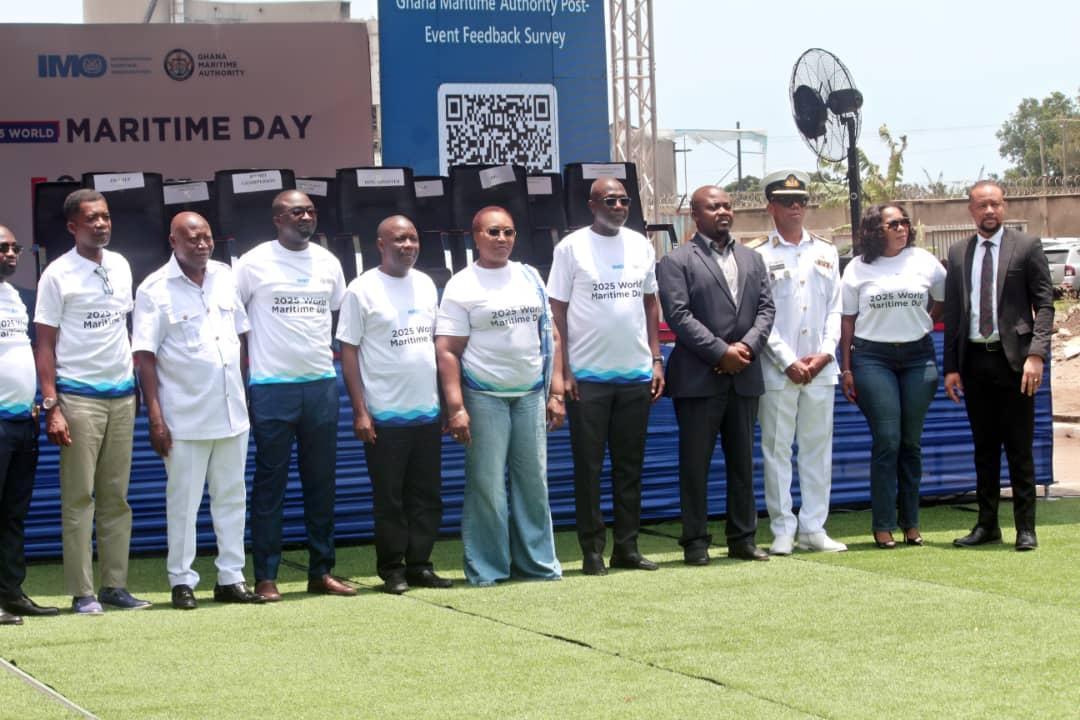Africa-Press – Ghana. The Ghana Maritime Authority (GMA) has fully operationalised its inland waterway unit to oversee the activities of boat operators on Ghana’s inland waterways.
Dr Kamal-Deen Ali, the Director-General of GMA, announced this at a commemoration durbar of the 2025 World Maritime Day on the theme “Our Ocean, Our Obligation, Our Opportunity”.
Dr Ali stated that “The Authority has fully operationalised the inland waterway unit, with its head office at Akosombo, to oversee the activities of boat operators on our inland waterways.”
He said it was in line with the vision of the government to operate a 24-hour economy whereby humans, goods and services could be transported on the country’s rivers to improve the economy.
He added that more work was being done along the inland waterways to identify areas for infrastructure upgrades, improved navigation aids, and better enforcement of safety standards.
He noted that other actions taken by the GMA included the authority having advanced talks with the Ghana Navy to crew and operate GMA’s Tier 3 oil response vessel, MV ESTHER OCLOO, in Ghana’s offshore oil fields.
“This move is to enhance safety and security within the oil fields and afford the Authority the opportunity to enforce standards in the fields,” he said, adding that the vessel also has the capability of being used for a tier 3 oil spill response and to protect the marine environment from any potential oil spill.
Dr Ali again stated that as part of infrastructure development and their commitment to protect Ghana’s Exclusive Economic Zone (EEZ), his outfit has purchased an advanced over-the-horizon surveillance system, an upgraded Vessel Traffic Monitoring Information System (VTMIS) which has the capabilities of detecting activities far beyond the visible horizon.
He explained that this would help them monitor activities far at sea and improve the surveillance of Ghana’s maritime domain.
“We are also planning a state-of-the-art Maritime Fusion Centre, which will integrate data from multiple agencies and international partners, ensuring real-time intelligence sharing and rapid response to threats at sea.”
The GMA director-general said as part of the reset agenda, staff of the authority were undergoing a realignment exercise in order to place staff in positions they would potentially perform better in to enhance its work and improve productivity.
“Earlier this year, we signed a landmark Memorandum of Understanding with key partners to improve seafarers’ working and living conditions, ensuring that the men and women who power our shipping industry are protected and respected,” he stressed.
According to him, these efforts signaled a simple truth: that GMA was transforming from a regulator into a proactive facilitator of sustainable maritime growth.
Touching on environmental issues, he said while they strengthen their institution, they must also confront the environmental crisis, emphasising that more than 80 percent of global trade travels by sea, and for coastal nations like Ghana, the ocean drives economic development and sustains livelihoods.
He added that despite this, the country has witnessed how plastic bottles, sachet wrappers, and discarded nets choke Ghana’s beaches and fishing grounds, noting that the United Nations Environment Programme (UNEP) estimates that 11 million metric tonnes of plastic enter the ocean annually, a figure that could triple by 2040 if no action is taken.
“This is not only an environmental threat; it is an economic and public-health challenge affecting our fisheries, tourism, and food security. That is why this year’s celebration has been action-oriented and community-driven.”
He said that policy alone could not clean the ocean; therefore, the meaning of the theme was that fisherfolk retrieve and report lost nets instead of abandoning them, shipping operators separate waste and use port reception facilities, households reduce single-use plastics and dispose of waste responsibly, youth and schools lead clean-up campaigns and innovation in recycling, and traditional leaders use their authority to promote responsible stewardship.
“If every household simply stopped throwing plastic into gutters, we would remove tonnes of waste from our marine environment each year,” he indicated.
For More News And Analysis About Ghana Follow Africa-Press







